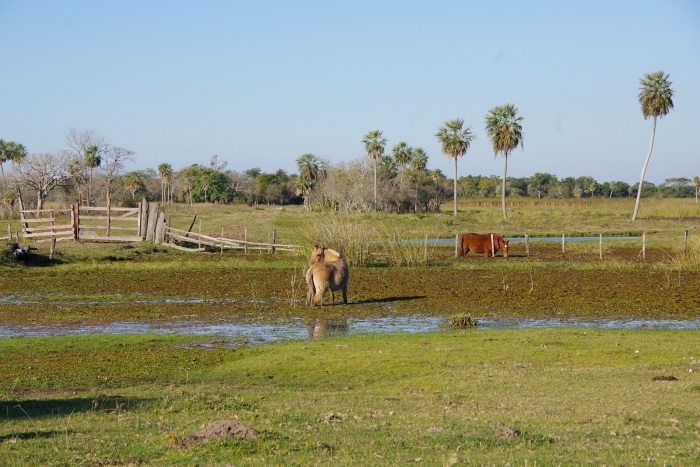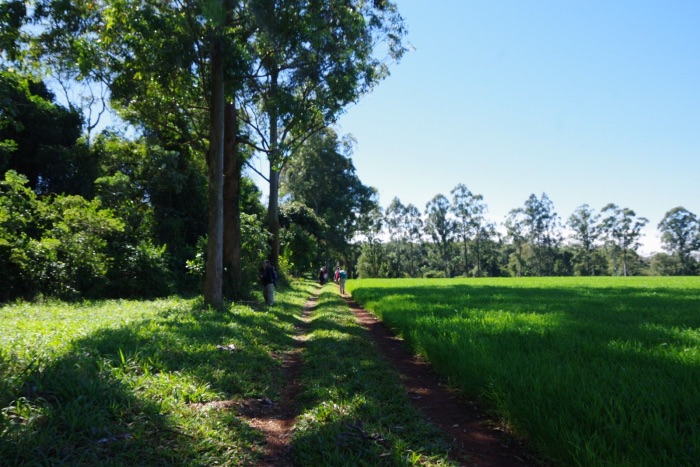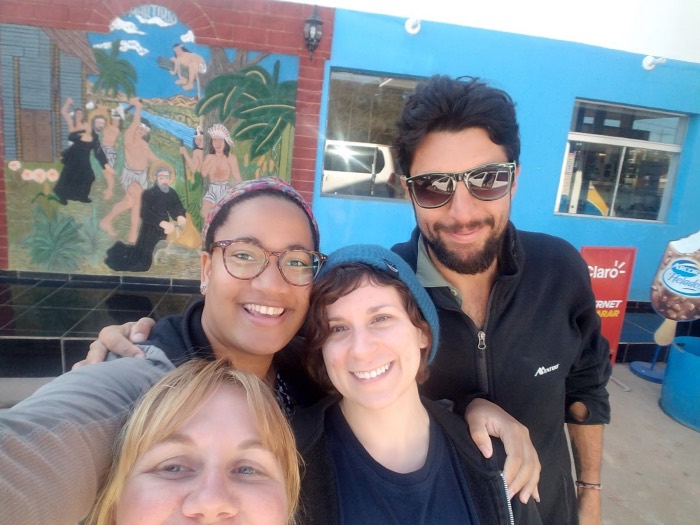Student Reflection
Paraguay Student Reflection: Christina Thompson

In Conservation, Relationships Matter By Christina Thompson
The more I learn about conservation and the more I travel, I have come to realize that conservation is less about plants and animals and more about people and our relationships.
It’s not that I think plants and animals aren’t important or worthy in and of themselves, but it’s more that conservation is a people-centric science, and I think that’s okay.
Like elsewhere in the world, conservation in Paraguay has a lot to do with people: how we live, how we survive, and what we care about most.
If we can understand how to strengthen relationships with the people and things around us--we can figure out some of the most difficult conservation challenges.
What’s our relationship with nature?
Which of the following best describes our relationship with nature? Head over heels? On again, off again? Long distance? It’s complicated?
Many of us have a complex relationship with nature. At times the relationship is loving and filial; we want to watch and help nature flourish and feel ourselves flourish, too. But at other times, the relationship is abusive and one-sided; we know that our actions are harmful, wrong even, and we don’t always know how to stop them. Sometimes we really don’t want to.
In Paraguay, I observed lots of complicated, intimate, and conflicting relationships with nature. I met children whose eyes lit up as they told stories about their favorite animals at the Biodiversity Fair in Pilar. We visited a farm smack in the middle of a soggy wetland, where there was a clear tension between valuing what was there but also needing more of it. We emerged from the damp, verdant embrace of the Upper Parana Atlantic Forest into a horizon of soy fields.

In Paraguay, like many other places, there is a mosaic landscape indicative of our relationship with nature. There are reserves and thick remnants of love. There are large tracts of breakups with ag fields and pasture, but lines and corners of trees signal that the relationship is not over yet. The soybean industry is growing in Paraguay, which produces roughly 3% of the world’s supply. The industry threatens the last remaining Atlantic Forest habitat in the country, and its beautiful and mysterious inhabitants. Cattle ranching, too, raises a question about the future of Paraguay’s relationship with nature as its expansion in the Chaco has raised questions about whether people and nature can thrive together. In the Neembucu wetlands, however, some cattle ranchers are learning how cattle can coexist with the native vegetation. This relationship may be a bit complicated, but it might turn out to be one of those feel-good romances.
What’s our relationship with others?
Now this is where things get really complicated. Being relative newcomers to the scene of existence, may explain why Homo sapiens sapiens do such a great job of treating each other poorly. Or perhaps, the capricious and malevolent ways we treat our fellow (hu)man today made for better survival in the past, whereas today that behavior is leading us towards self-destruction. In any case, if I had to rate humankind’s relationship with, well, humankind it would probably get a “needs improvement” at the very least.
Around the world, we’ve judged ourselves and others on arbitrary values and symbols (status, wealth). In that pursuit, we’ve assigned worth to things that are worthless (diamonds, gold) and made paltry things that are priceless (abundant nature, clean air, and water).
In spite of these mortal flaws, we’ve found amazing ways to be absolutely beautiful to one another.
In Paraguay, I observed more beauty than pain and more love than cruelty. I saw the friendship and compassion shared by a group of conservationists who had encountered more than a few obstacles during their conservation journey. I saw them support and empower others in their new home through Voces de la Naturaleza and partnerships with Pilar Sostenible.
We saw a lot of beautiful relationships on our trip, but we didn’t see everything. There is a deep admiration for and awareness of the indigenous Guarani culture. It is so profound that it reverberates through language and story and everyday habits. However, in Paraguay, like many other places, indigenous peoples and poor campesinos struggle to gain rights to land ownership. While the agriculture economy grows and Paraguay builds relationships with foreign nations and their economies, human rights abuses including forced and low- to no-wage labor are taking place on cattle ranches in the Chaco region. Indigenous and other vulnerable laborers, including children, have been recruited to work in dangerous conditions at farms throughout the Chaco, prompting a slow but steady response from government officials and international agencies.
Often in conservation, one finds a tangible and inextricable thread between environmental issues and social issues. In Paraguay, the case for a more environmentally just agriculture industry can also be made to support a socially just ag industry. Would Paraguay have need of a demanding agriculture industry, in which food crop production has declined and cash crop production has increased, in a world where relationships came first and profits came second?
I truly believe that if we can figure out how to build better relationships with those (and thats) around us, we can love our way to a better world with a better conservation future. It’s time to get serious with mother nature and with ourselves if we want to have a world where people and nature thrive.

Barros, C. J., Campos, A., Griffin, J. (2018, Sep 18) Forced Labor in Paraguay: the darkness at the bottom of the global supply chain. The Guardian. Retrieved from https://www.theguardian.com/environment/2018/sep/18/forced-labour-in-paraguay-the-darkness-at-the-bott om-of-the-global-supply-chain
Tegel, S. (2018, Aug 8). Latin America’s Vast Tracts of Inequality. U.S. News & World Report. Retrieved from
https://www.usnews.com/news/best-countries/articles/2018-08-08/paraguay-court-case-underscores-uneq ual-land-ownership-across-latin-america
Brettonwoods Project. (2018, Sep 27) World Bank investment in Paraguayan cattle industry linked to human rights violations and environmental harm. Brettonwoods Project. Retrieved from
https://www.brettonwoodsproject.org/2018/09/world-bank-investment-paraguayan-cattle-industry-linked-hu man-rights-violations-environmental-harm/
Bronstein, H., Desantis, D. (2018, Jun 4) Paraguay soybean exports to top Argentina’s for first time. Reuters. Retrieved fromhttps://www.reuters.com/article/us-paraguay-soybeans-analysis/paraguay-soybean-exports-to-top-argentin as-for-first-time-idUSKCN1J00E5
Learn more about our Earth Expeditions course: Paraguay: Eco-Leadership